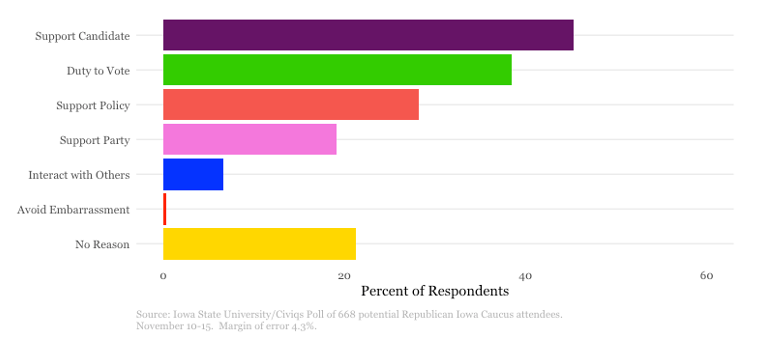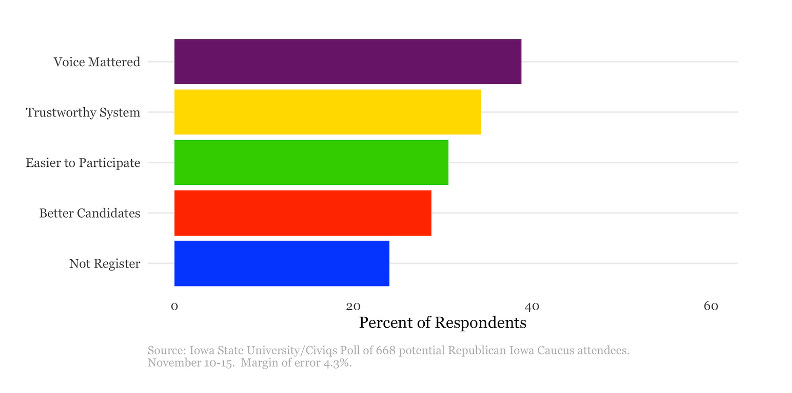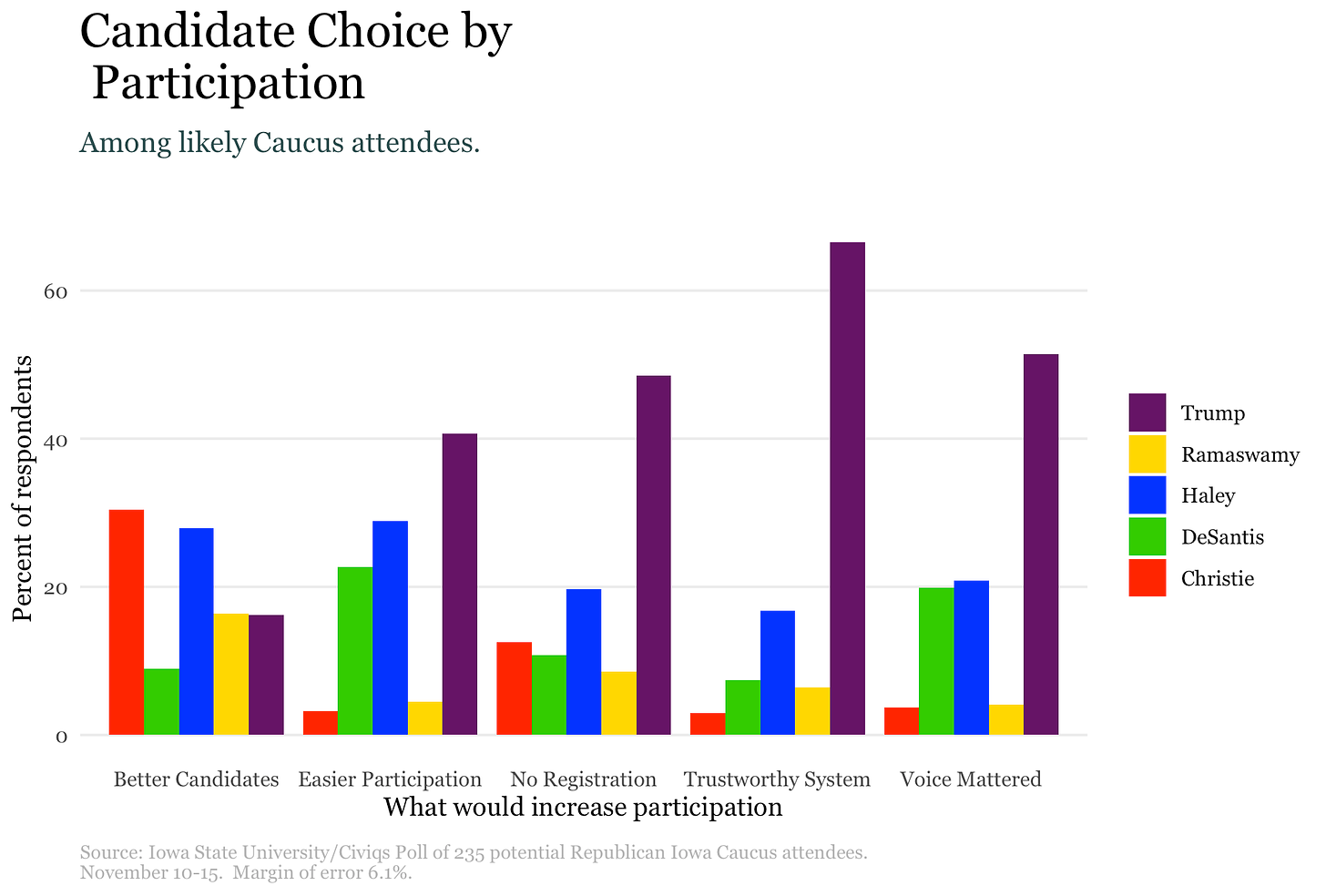Why Republicans turnout in Iowa will likely be lower than it was for Democrats in 2020
A new ISU survey looks at why some Republicans don’t plan to caucus
The Republican nomination race for 2024 is obviously very different from the Democratic race in 2020. Trump has been a dominant frontrunner throughout the race and few likely caucusgoers have changed their mind about which candidate they are supporting. This differs from four years ago when several candidates cycled through a lead.
In our polling of the Iowa Caucuses, another important difference from 2020 was evident from our first poll in September. Iowa Republicans are less engaged and less likely to participate than Democrats were four years ago.
We’ve been doing monthly surveys of likely caucusgoers. In each wave of our survey, we ask how likely the respondent is to participate. We are using the same sampling technique and question as in 2020, making it easy to compare how likely partisans and independents are to participate across the year. In each month, Republicans report being less likely to participate in 2024 than Democrats were in 2020. Independents also report being less likely to participate this year than four years ago.
In December 2024, for instance, 47 percent of Republicans surveyed said they were definitely going to participate, compared to the 64 percent of Democrats who said they were definitely going to participate in December 2020. The differences for independents were smaller, but the percentage who say they will definitely participate has gone from 27 percent in 2020 to 19 percent in 2024.
We wanted to explore the reasons why Iowa Republicans are less engaged with the Caucuses than Democrats were four years ago and what might further engage Republicans in the caucus process. To do this, our November survey included questions asking respondents what is motivating them to participate in the caucuses and what would have made them more likely to attend the January caucuses.
Our survey question gauging their motivations to participate allowed respondents to select as many of the following options as they wanted: to support a candidate, they have a duty to vote, to support a specific policy, to support the party, to interact with others, and to avoid the embarrassment of not participating.
Respondents reported that their main motivation for participating was to support a candidate, but less than half of our respondents selected that option. The duty to vote was the reason given by almost 40 percent of our respondents, and 28 percent indicated that they wanted to support a particular policy. Less than one in five indicated that their participation was motivated by support for the Republican Party.
Why participate in the caucuses?
If Republicans are less engaged than Democrats were four years ago, what would make them more likely to be involved? We gave respondents five different things that would make them more likely to participate. They could indicate that they would be more likely to participate if their voice mattered more, the system was more trustworthy, if the process made it easier to participate, if they didn’t have to register as a Republican, and if there were better candidates. Respondents could select as many or as few of these options as they wanted.
What would make you more likely to participate in the caucuses? (Asked of those who do not plan to participate)
The most frequent answers were about the political system itself. More respondents indicated that they would be more likely to participate if their voice mattered more or if the system was more trustworthy. The difference between these two responses is that indicating that your voice doesn’t matter is a signal that the outcome of the race is not at all competitive. In contrast, the high number saying that the system is not trustworthy suggests that around a third of potential caucus goers think that this Republican Party-controlled process in a Republican control state is corrupt. About a quarter of respondents indicated that they would be more likely to participate if there were better candidates.
These reasons for not participating correlate with which candidate the respondent supported. In the next figure, we limit our analysis to Republicans who say they are not going to caucus to examine the connections between the reasons why people are not caucusing and their candidate choice. The sets of bars are the percent of respondents who gave the listed reason for not participating who chose the candidate as their first choice.
Respondents who are not participating because they have objections to the system, either because it isn’t trustworthy or that their voices aren’t heard, disproportionately support Trump. This is not too surprising. Trump has consistently attacked the political system and he’s drawn from people who are disaffected from politics.
The largest contrast is with the respondents who say they would be more likely to participate if there were better candidates. These Iowans are more likely to be backing Christie or Haley. This is similar to what we’ve found previously. Haley and Christie are picking up support from caucus goers who are opposed to Trump. It implies that their support among Iowans is mostly in opposition to Trump than it is motivated by positives about Haley or Christie.
Haley is defeating DeSantis among Iowans who could plausibly attend the caucuses, but say that they will not, suggesting that efforts to encourage people to overcome their concerns and participate could be very beneficial to her campaign.
















